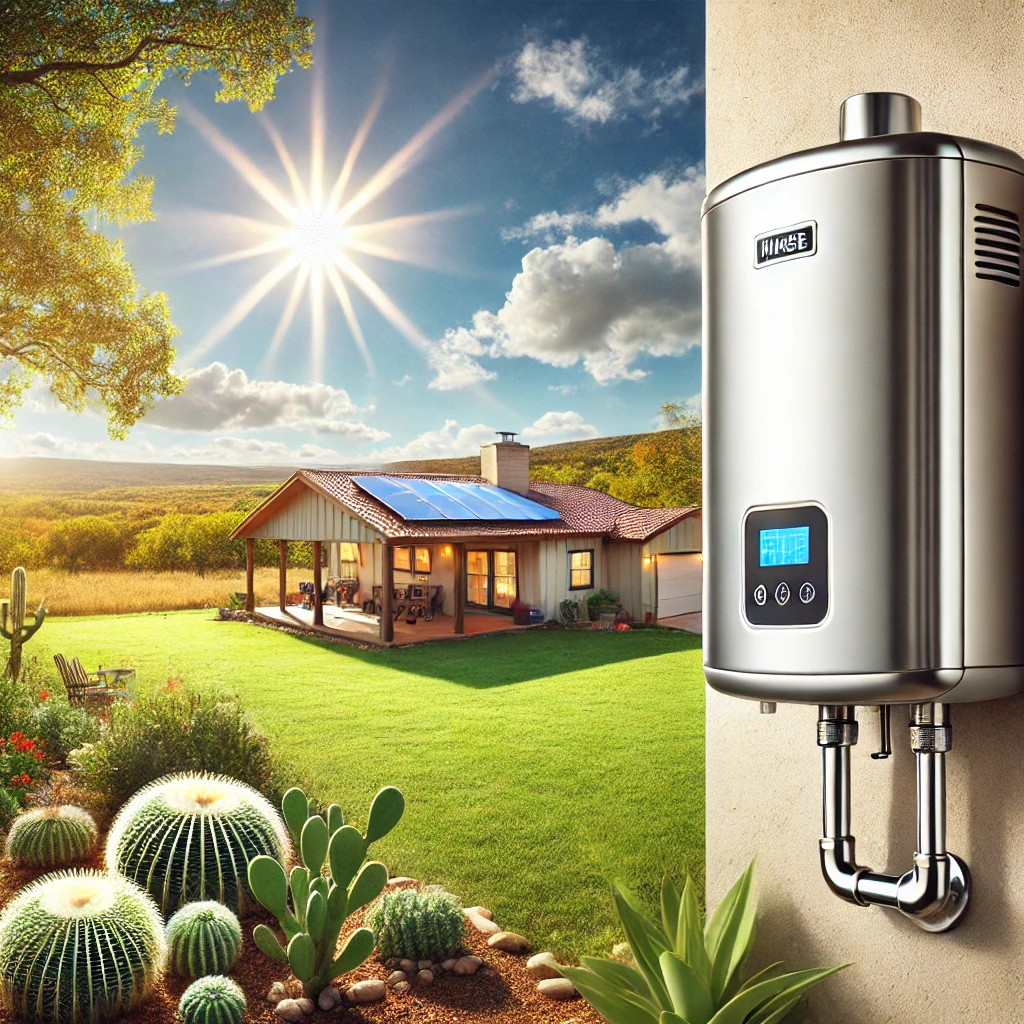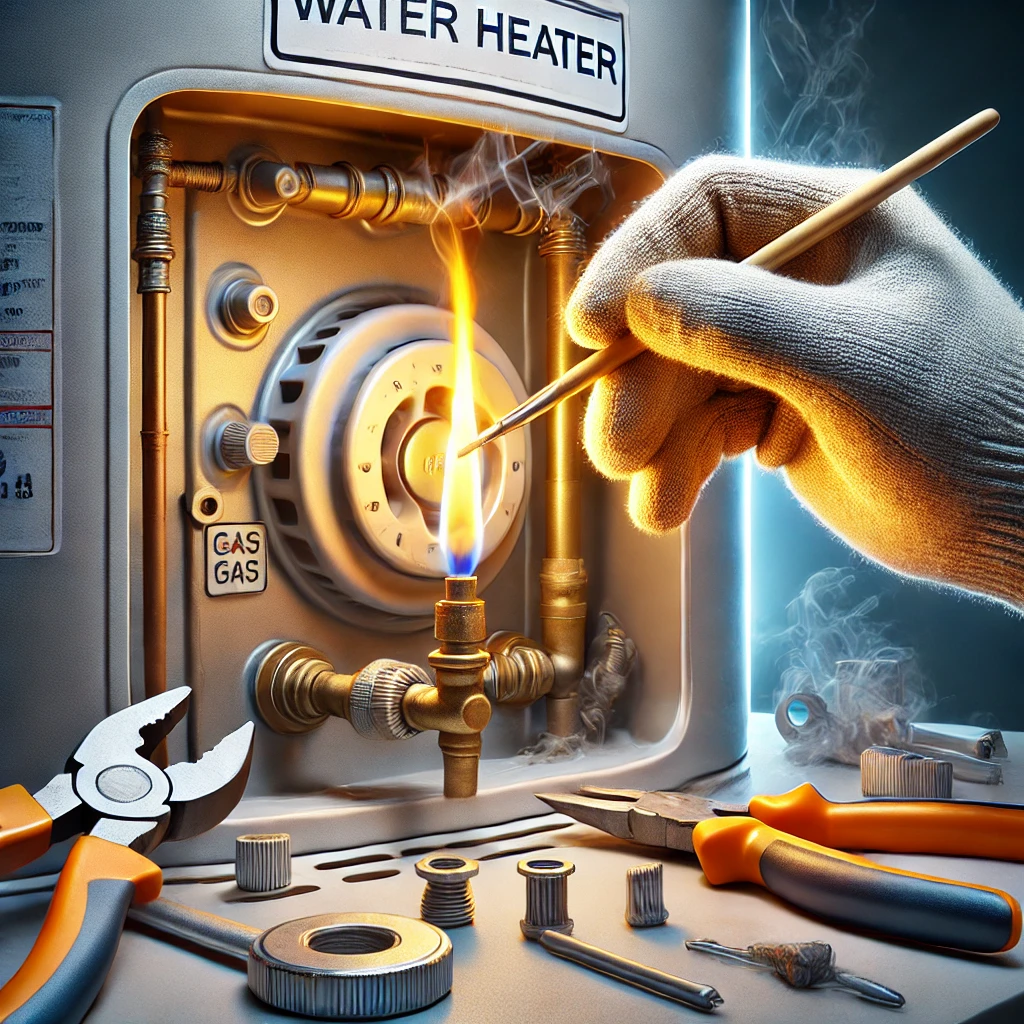
How to Harness Solar Energy to Power Your Water Heater in Texas: Smart Tips for Your Home
Are you a Texas homeowner looking to save money on your electricity bill while making your home more eco-friendly? Or perhaps you're seeking a way to provide hot water to your home with minimal impact on the environment? What if we told you that the future of your water supply could be almost free, powered by the abundant sun overhead? In this article, we’ll explain how a solar-powered water heater can be a game-changing solution for your Texas home—helping you reduce costs and live more sustainably.
Why Should You Consider a Solar Water Heater?
Living in Texas comes with its fair share of unique challenges, especially when it comes to managing utility bills during the scorching summer months. High temperatures often translate into high electricity consumption, especially when it comes to heating water. With the abundant sunshine Texas enjoys for most of the year, installing a solar water heater could be the most effective way to cut down on energy costs.
Not only does a solar-powered water heater help you save on monthly energy bills, but it also allows you to drastically reduce your household's carbon footprint. The best part? Texas is known for its sunny days—more than 230 each year—making it an ideal location for solar energy systems to thrive.
How Does a Solar Water Heater Work?
A solar water heater uses the sun’s free and renewable energy to heat the water in your home. The system works by using solar collectors, usually mounted on your roof, to absorb sunlight and convert it into heat. This heat is then transferred to water through a network of pipes.
Types of Solar Water Heaters
The most common types of solar water heaters use one of two methods to transfer the heat to your water:
Direct systems, where water is heated directly by the sun through the collectors.
Indirect systems, which use a heat exchanger to transfer the heat to a separate water supply, typically using a non-freezing fluid like antifreeze.
For homeowners in Texas, the advantage of using solar water heaters is the virtually unlimited supply of sunlight, which allows for year-round operation—especially when paired with low rainfall and clear skies.
Types of Solar Water Heaters: How to Choose the Right One
When it comes to selecting the best solar water heater for your home, there are two main systems to consider: active circulation and passive circulation.
Active Circulation Systems
These systems use electric pumps to circulate water or heat-transfer fluids throughout the system, making them more efficient in colder weather. Active systems are perfect for those who want a reliable and consistent supply of hot water, even when temperatures are lower.
Passive Circulation Systems
On the other hand, passive systems rely on natural convection to move water through the system. They are simpler, more affordable, and easier to maintain but may not perform as efficiently in areas with inconsistent sunlight.
In Texas, where temperatures often soar during the summer and the need for hot water remains constant, active circulation systems are generally recommended. These systems work efficiently in high temperatures and offer better performance during extended sunny periods.
How to Install a Solar Water Heater in Texas
While installing a solar water heater may seem like a DIY project, it’s best to leave it to professionals, especially if you are unfamiliar with the complexities of solar energy systems. Proper installation is essential to ensure that your system works at maximum efficiency.
Here are a few key points to keep in mind during installation:
Roof Orientation
Solar collectors should ideally be placed on a south-facing roof to capture the most sunlight. In Texas, where the sun is most abundant in the southern part of the sky, this orientation maximizes energy absorption.
System Size and Capacity
In Texas, summers can be extreme, and winters—although mild—can bring some cold spells. It’s important to correctly size your solar water heating system to meet your household’s needs year-round.
Professional Installation
While some homeowners may feel confident with installation, hiring experienced professionals can save you money in the long run. Improper installation could lead to inefficiencies and additional costs down the line.
Texas has a number of experienced companies that specialize in solar technology, and they can guide you through the process—from system design to installation and maintenance.
Frequently Asked Questions
How long will the system last?
Solar water heaters typically last between 15 and 20 years with proper maintenance. The only ongoing costs are minimal, usually related to cleaning and occasional inspections.
Is it worth installing a solar water heater in Texas?
Absolutely! The long-term savings on your electricity bill make solar water heaters an excellent investment, especially in a state like Texas, where solar energy is abundant year-round.
Can solar water heaters be used in Texas winters?
Yes, Texas winters are generally mild enough to keep your solar water heater working efficiently throughout the year. Even on overcast days, your system should still produce some hot water.
Advantages of Solar Water Heaters for Texas Homes
1. Significant Savings on Electricity Bills
Solar energy significantly reduces your water heating costs. The more energy-efficient your water heating system, the more money you save each month.
2. Environmentally Friendly
By reducing reliance on traditional energy sources, solar water heaters help reduce greenhouse gas emissions. Installing a solar system means you’re actively contributing to the fight against climate change.
3. Long-Term Durability
Solar water heaters are built to last. With minimal maintenance and a long operational life, these systems provide significant value over time.
4. Greater Energy Independence
By reducing your reliance on the electrical grid, you not only save money but also gain more control over your energy consumption—especially valuable as electricity prices continue to rise.
Expanded Benefits of Solar Water Heaters
Specific Advantages for Hot Texas Climates
The intense and consistent sunlight in Texas makes solar water heaters particularly effective. Solar panels in this climate have fewer obstacles, such as cloudy days or shorter daylight hours, allowing them to produce energy efficiently throughout the year.
Incentives and Subsidies
The state of Texas offers various government incentives and tax credits to homeowners who install solar energy systems. These incentives help offset the initial costs of installation, making solar energy more accessible to a broader range of homeowners.
Efficiency in Extreme Conditions
Even during unexpected cold snaps or long stretches of overcast weather, modern solar water heaters are designed to function efficiently. Hybrid systems that are connected to the power grid can help maintain a consistent hot water supply in extreme conditions.
Real-Life Examples of Successful Use
Case 1: John and Mary, homeowners in Austin, Texas, installed a solar water heater two years ago. Since then, their electricity bills have dropped by about 30%, and the system paid for itself within five years thanks to tax credits. John shares, “I don’t worry about those expensive summer bills anymore.”
Case 2: The Rodriguez family near San Antonio uses their solar system to heat water for their pool and maintain temperatures in their greenhouse during the winter. They’ve also integrated a hybrid system to ensure they always have hot water, even during the colder months.
In-Depth Analysis of Efficiency
Energy Consumption Comparison
On average, solar systems use 50%–80% less energy than traditional electric water heaters, drastically cutting down on energy consumption.
Operational Costs
The only ongoing costs associated with solar water heaters are related to maintenance and occasional part replacement, which are relatively minimal compared to traditional systems.
Environmental Impact
By installing a solar water heater, you could reduce carbon dioxide emissions by 1 to 2 tons annually, contributing to the reduction of your household’s environmental impact.
Conclusion: Choose Solar Energy for Your Texas Home
Solar water heaters are more than just a trendy technological innovation—they offer real-world benefits that can save you money, reduce your carbon footprint, and improve your home’s energy efficiency. With Texas' sunny climate, there's never been a better time to embrace solar energy. Whether you're looking to save on your electricity bill or make an eco-conscious decision, solar water heaters are a valuable investment.
Now that you understand the advantages of solar water heaters, why not take the first step toward energy efficiency in your Texas home? The sun is already working for you—don’t miss the opportunity to make the most of this natural, renewable resource!






